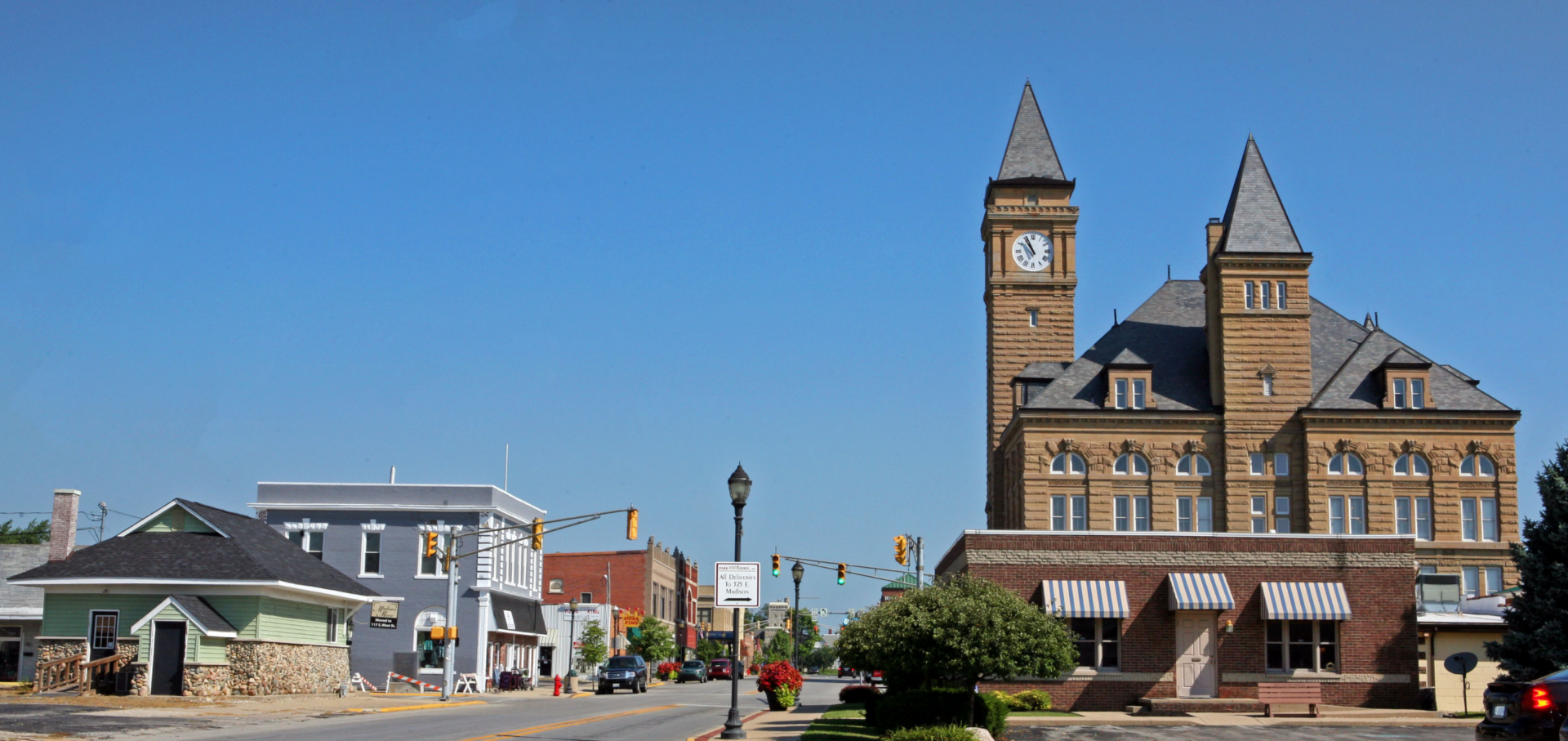Rural Indiana’s big opportunity with tech
On a bright and sunny late spring day, Kegan Schmicker walks down the sidewalks of downtown Tipton, Ind., with his mind on growing his community and how Indiana’s burgeoning tech ecosystem could play a big role in it.
Schmicker, executive director of the Tipton County Chamber of Commerce, is fresh off a nomination for Community Impact of the Year at the 23rd annual Mira Awards. Recognized for its heavy investment in leadership development across the public, private, and nonprofit sectors, Schmicker and the Tipton County Chamber aim to build the next generation of makers-and-shakers in the county. It’s all in service to the larger goal that Schmicker says is to build a place where people want to be, so in turn it becomes a place people want to visit and ultimately make their home.

Coinciding with the efforts of people like Schmicker is the rise of hybrid and remote work across the workforce and especially in the tech ecosystem. The shift provides an incredible opportunity for small and rural communities, such as Tipton, to attract tech professionals in a way they never have before.
The benefits of rural community living for remote and hybrid tech professionals
Since “work from home”, “hybrid work” and “remote work” have become common parlance in offices across the country, people are learning where they are most productive and which model best fits their lifestyle. For many tech pros, working totally remotely or having hybrid options is a premium, and to those people, communities like Tipton have a variety of benefits to offer.
Carly Tilley, office manager with Anew Realty, is a born and raised Tipton resident who wants to see the town grow and develop in healthy ways. “We are the town that the ‘city folk’ want to move to to try and remember what peace and quiet feels like,” she said. “I would sell them on the fact that we have that strong sense of community, everyone helps everyone attitude, a small but up and coming town.”
Schmicker highlighted that the relative quiet and slow pace of life in Tipton is something some professionals, especially those with families, prize highly. He, and every person who contributed to this story, feels strongly about the sense of community Tipton shares — “Hoosier Hospitality” in practice among neighbors.
When asked why tech professionals should consider living in Tipton, Zach Conner, partner with Logan Graham & Conner Accountants PC, said they should ask themselves about their last experience on the interstates around central Indiana. “Seriously, Have you driven on I-465 lately?” he said. “I did last Sunday and it was a horrible experience.”
Short or non-existent commutes to work are an undeniable advantage to hybrid and remote work, and Tipton residents like Conner see having a tight knit community like theirs as a way to fully embrace that. “It’s a great, small community that is really a hidden gem,” he said. “I am excited about what is happening in Tipton right now. I have a 17 minute commute to work and I have one stop sign. How many do you have?”
How best to attract hybrid and remote tech professionals?
Building and redeveloping a community into a place people want to live in is no short order. “The opportunity to attract remote workers requires a community in which people want to live,” Schmicker said. “Tipton is marketable today, but the quality of life could be better. We could have more things that make it better, and even more desirable. We focus on attracting new business, and sometimes forget about retaining current businesses and residents. It’s just as important.”
“Creating ways to convene people allows people who might not be from here to integrate easily in ways that aren’t artificial is important,” Schmicker said. “Building networks like that will make Tipton more attractive; providing ways for people to meet other people naturally.”
Part of building that community for professionals to convene requires the infrastructure to support it. In the last several years Smithville Fiber was a recipient of Next Level Connections Broadband Grant funding to expand internet access in parts of Tipton and Monroe counties. “Tipton County needs to continue being intentional about solving the broadband issue because it is actively hindering residential growth,” said Schmicker. “Local investment needs to happen, not only to help encourage more investment, but also because deployment of broadband is an economic development effort that’ll provide a great return on investment.”
Schmicker believes some of that investment would also be well served in creating office spaces for workers in rural areas to utilize, creating micro hubs which could help to spur further redevelopment and revitalization efforts.
Bringing a rural perspective to the tech industry
It is always important to include voices and ideas that have been left out or underrepresented in the past, and when it comes to rural communities, such as Tipton, there are valuable perspectives to be heard.
“Technology is necessary for any community small or large,” said Conner. “The advancement of everyday living is the innovation that is necessary to bring genuine, good thoughts and ideas.” He went on to say that sometimes it feels like tech companies develop products or change GUI’s (graphic user interfaces) just because they can.
“I find I have to help older generations navigate the state government websites or the IRS after these changes,” Conner said. “How can they do better? Once it works, keep it in place.”
Carly Tilley said having only one or two IT professionals (she knows of) living in Tipton County leaves something to be desired, and requires her team to look north to Howard County for IT support. She also said that tech companies selling their products in communities like hers would benefit from reimagining their sales pitches.
“No one, especially an older generation who doesn’t like technology to begin with and especially in our kind of community, wants someone to tell them what they need,” she said. “Making [sales] presentations in more of an educational way, I believe, goes further. That allows people to ask more questions, determine if it really is something that businesses and people need, dive deeper into the products, and develop a relationship with that company.”
Schmicker acknowledges that tech solutions are rarely marketed to rural users and small business users due, in part, to a lack of technical fluency. “That lack of skills may also highlight another opportunity to improve the client experience,” he said. “There are people and businesses who want to leverage technology, but often have no idea where to begin, or they find it intimidating. Places like Tipton could provide input to improve the onboarding experiences and adoption rates of new clients.”




